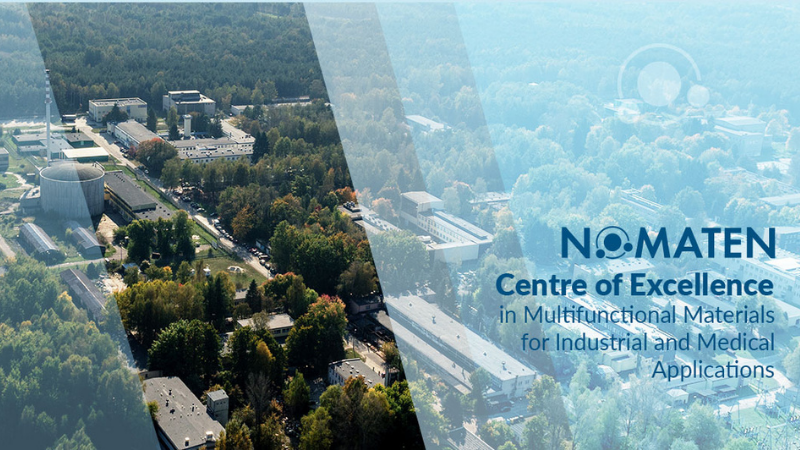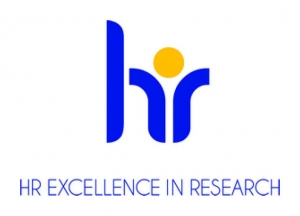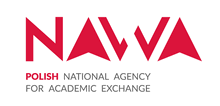PhD candidates - Assistant Research (PL form “Asystent”) Advanced Multifunctional Materials Science | NOMATEN
2022.10.30 14:05 - Anna Sawińska

NOMATEN Center of Excellence is formed through a partnership between NCBJ (Poland), CEA (France) and VTT (Finland) with joint financial support from the Foundation for Polish Science (FNP) and the European Commission. It is currently composed of 5 Research Groups and is directed by Mikko Alava. NOMATEN focuses on the characterization, analysis and development of advanced multifunctional materials, specifically those designed to work in extreme conditions, with primary examples being radiation, high temperature and corrosion. We also conduct research on development of novel diagnostic and therapeutic approaches, based on radiopharmaceuticals, to defeat cancer disease. Read more about NOMATEN development at http://nomaten.ncbj.gov.pl
Multiple positions exist on the PhD student levels in NOMATEN Research Groups with a proposed starting date of January 1st:
Complexity in Functional Materials: mechanical properties (yielding, time-dependent fracture) to the role and understanding of the microstructure in determining such properties. We also work on Machine Learning approaches in complex materials. Key words of importance are metal alloys, and High-Entropy Alloys in particular.
Two example PhD projects are:
- understanding materials’ deformation with material informatics. Plasticity in metals and metal alloys is a complex phenomenon. In this PhD project we apply dislocation simulation and machine learning-like approaches to plasticity. Example publications are Phys. Rev. 5, 073601 (2021) and 4, 083602 (2020).
Preferred background: Statistical mechanics, computational simulations, machine learning.
- Computational materials science on the development of corrosion-resistance multicomponent alloys. You will be part of a team focused on uncovering the origins of the exceptional mechanical properties of multi-principal element alloys (MPEAs) as functions of composition under water with dissolved oxygen at various temperatures. To tackle these multi-scale challenges, we need to develop reactive force field (ReaxFF) of MPEAs-H-O systems for Molecular dynamics (MD) simulations to understand the mechanochemical behaviors at the atomic scale. You are supposed to develop a ReaxFF by performing some first principle calculations for each binary selection of elements in the systems. Then you will do some ReaxFF- MD simulations to investigate stress corrosion cracking of MPEAs.
Preferred background: Physics, chemistry, chemical Engineering, materials Science, or a related field, eperience with electronic structure calculations using packages such VASP, Quantum Espresso, or similar codes, experience with molecular dynamics modeling of reactive systems would be a plus.
Contact person: prof. Mikko Alava (mikko.alava@ncbj.gov.pl)
Functional properties group is studying impact of radiation damage on the mechanical and structural properties. Specific topics covering materials devoted to Gen. III+ and IV nuclear reactors like: stainless steels, ODS and HEAs, Al2O3 coatings, zirconium and nickel alloys will be proposed. Experiments will be conducted on ion damaged materials and at their working temperatures by using specific techniques like: nanoindentation, X-ray diffraction, tensile tests and Raman spectroscopy. Structural properties are determined by means of SEM/FIB/EBSD/EDS and TEM.
PhD project:
- For nuclear applications, radiation-induced failure is one of the major limiting factors for applying new materials as structural components in Gen. IV nuclear power reactors. Several works show that high-entropy alloys may hold potential applications with a long service life in an extreme irradiation environment. However, the radiation damage mechanisms of high-entropy alloys are still in debate and don't remain fully explored. For this reason, fundamental work is needed to study defect structure evolution in high-entropy alloys during ion-radiation. Hence, the primary goal of the proposed work is to develop novel high-entropy alloys and investigate the relationship between the microstructure and properties of the materials.
The position is open in the frame of the Polonez BIS grant headed by dr Huo. A candidate with a strong background in using analytical TEM techniques, particularly HRTEM/STEM-HAADF, for the analysis of defect structures is searched. Experience in the use of Cs-corrected microscopes will be considered. Some knowledge of nanoindentation, in-situ TEM tests, or digital image correlation tensile testing would be a plus. He/she is open-minded and autonomous, willing to interact with other researchers and contribute to several common goals.
Preferred background: Materials science, materials engineering, nuclear engineering, mechanics.
More about this position: https://old.ncbj.gov.pl/en/praktyki/phd-student-scholarship-material-sci...
Contact person: Lukasz Kurpaska (lukasz.kurpaska@ncbj.gov.pl) and Wenyi Huo (wenyi.huo@ncbj.gov.pl)
Requirements:
- Master of Science or equivalent.
- Fluency in English, spoken and written
Location:
National Centre for Nuclear Research (NCBJ), ul. Andrzeja Sołtana 7, 05-400 Otwock, Poland
(Suburb of Warsaw, efficient and free daily bus transport service provided).
Gross Salary:
4200 - 7,000 per month (at current exchange rate 875 -1,400 € per month); the details in each case depend on qualifications and experience, and the compensation is composed of the base salary and seniority addition, project bonus).
Read more about contributions in Poland at https://old.ncbj.gov.pl/en/hrcareer/contributions-poland
We offer:
One year initial employment with extension after a positive evaluation.
Work in international network with research institutes and industrial companies.
Access to the research potential of NOMATEN’s three partners between NCBJ (Poland), CEA (France) and VTT (Finland).
Some of the positions are for joint collaborative research with NOMATEN partners CEA (France) and VTT (Finland) and thus include extensive visits to the collaborating institution.
Travel funds for participation in conferences and collaboration, attractive working conditions, atmosphere of teamwork, family-friendly environment with flexible working hours, support of an experienced local team in legal, financial and organisational issues as well as logistic support and advice related to working in Poland - enabling smooth relocation and equal opportunities.
Required documents:
- cover letter that explains the motivating factors for considering the position (max. 1 pp),
- CV with complete publication list,
- brief description of important scientific achievements and scientific outlook,
- a list of 2 reference persons including their positions and contact details (e-mail address),
- MSc diploma copy/scan:
As an attachment to your application please sign and enclose the following declaration:
I agree to the processing of my personal data included in this application for the needs necessary to carry out the recruitment.
Application deadline: November 30th, 2022
Applications in electronic form should be submitted in English to: magdalena.jedrkiewicz@ncbj.gov.pl
Candidates may be asked to provide additional documents. We reserve the right to contact only selected candidates and the right to inform about the decision to fill the post only to the selected candidate.
Candidates may be asked to provide additional documents. In the selection process, short-listed candidates will be interviewed in person or remotely.
INFORMATION CLAUSE ON PERSONAL DATA PROCESSING:
- The controllers of the personal data processed during the recruitment process are:
- National Centre for Nuclear Research, ul.Andrzeja Sołtana 7, 05-400 Otwock and
- Foundation for Polish Science, ul. I. Krasickiego 20/22, 02-611 Warszawa.
-
The data protection officer can be contacted by using the following address:
-
Personal Data Protection Officer, National Centre for Nuclear Research,
Sołtana 7, 05-400 Otwock, Poland - iod@ncbj.gov.pl
-
Personal Data Protection Officer, National Centre for Nuclear Research,
- Providing data contained in recruitment documents is a condition for applying for a job at NCBJ.
- Processing of the personal data for the purpose of filling the position listed in this announcement and to conduct subsequent recruitment is done on the basis of expressed consents. You have the right to withdraw your consent at any time, without affecting the lawfulness of the processing based on consent before its withdrawal.
- Your personal data will not be made available to other data recipients.
- Your personal data will not be transferred to a third country or to an international organization.
- No automated individual decision-making and profiling as referred in Article 22 (1) and (4) GDPR is done during recruitment conducted by NCBJ. This means that no decisions regarding job candidates are made automatically and that no job candidate profiles are made.
- In the case you have been unsuccessful in applying for the position listed in this announcement and you haven’t given consent to store the collected personal data in the NCBJ recruitment database, your data will be erased no later than 12 years from the completion of recruitment process, but no longer than the date of the end of the durability period of the project, which will find its basis in the provisions governing project financing.
- You have the right to access your personal data, request its rectification or erasure. Filing a request to erase data is tantamount to withdrawal from the recruitment process. You have also the right to request restriction of processing in cases specified in Article 18 GDPR.
- You have the right to lodge a complaint with a supervisory authority (President of the Office for Personal Data Protection) about unlawful processing of your personal data. The right to file a complaint only concerns the lawfulness of the processing of personal data, not the recruitment process.

The National Centre for Nuclear Research is awarded by “HR Excellence in Research”. Recruitment in NOMATEN is based on OTM-R system (Open, Transparent and Merit-based recruitment practices in Research Performing Organisations).
This project has received funding from the European Union’s Horizon 2020 research and innovation programme under grant agreement No 857470 and Foundation for Polish Science International Research Agenda PLUS programme grant No MAB PLUS/2018/8 co-financed by the European Union under the European Regional Development Fund the Smart Growth Operational Programme.










